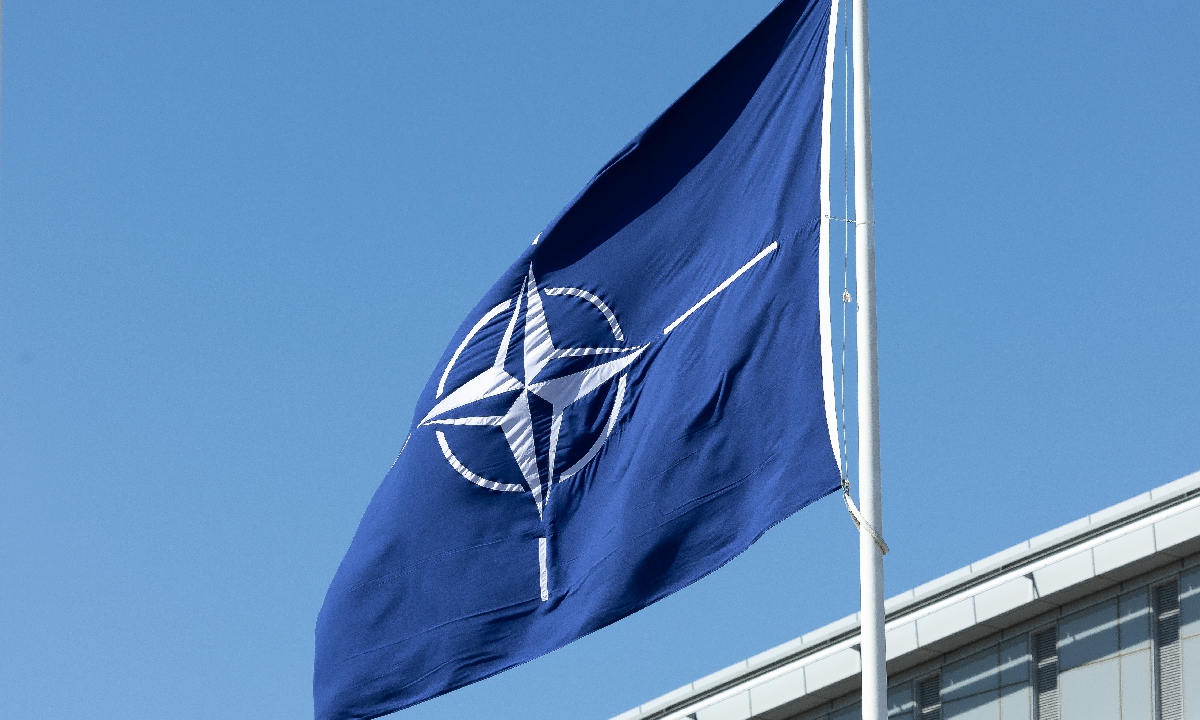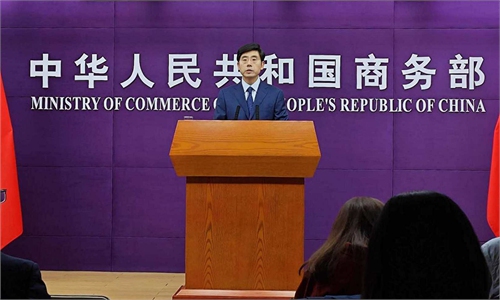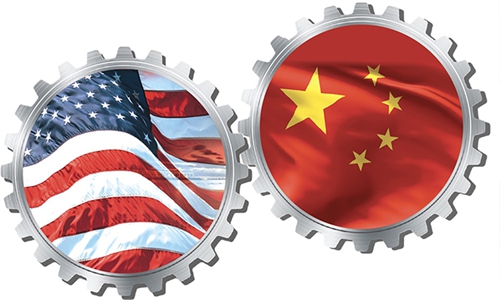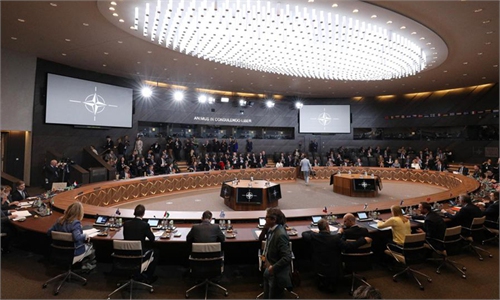NATO chief's Japan visit aims to stoke regional tension, shift focus from rift with Washington: expert

NATO Photo: VCG
NATO Secretary-General Mark Rutte said that Japan and NATO plan to take their partnership to the next level. In an interview with the Japan Times ahead of his planned trip to Japan, Rutte also claimed that one "could increasingly see China as a threat." The NATO chief's remarks and planned trip to Japan are aimed at stoking tension in the Asia Pacific region, search for relevance, and divert attention away from the bloc's growing rift with the new US administration, a Chinese expert said on Sunday.
Japan and NATO plan to take their partnership to the next level by stepping up information-sharing and defense-industrial cooperation, Rutte told The Japan Times in an interview on Friday, as the 32-member military alliance views "more practical" cooperation with Tokyo and other Indo-Pacific partners as key to addressing so-called global security challenges.
"Since the new US administration came into power, NATO's status has been seriously threatened. Therefore, this visit is aimed at promoting NATO's eastward expansion and searching for the military alliance's relevance," Lü Chao, an expert at the Liaoning Academy of Social Sciences, told the Global Times on Sunday, noting that the NATO chief will likely try to exert influence and pressure Japan into participating more actively in NATO's so-called Indo-Pacific strategy.
"We have to move beyond... joint declarations... let's make it practical," the NATO chief said ahead of his first trip to the region since taking office in October. Rutte claimed that the alliance aims to expand ties not only with Japan but also Australia, New Zealand and South Korea - commonly known as the Indo-Pacific four (IP4), according to the Japan Times.
By seeking to expand cooperation with the IP4, NATO also aims to align itself with the US' so-called Indo-Pacific Strategy. "The visit to Japan is not driven by goodwill, but rather an attempt to assert its relevance by stirring up regional tension as NATO's status has been challenged under the new US administration," Lü said. The new US administration and NATO face differences on issues such as defense spending and the Ukraine crisis, with the US even episodically threatening to pull out of NATO, according to media reports.
On China, the NATO chief claimed that in his view, one could "increasingly see China as a threat," while referring to a US report asserting that China will have over 1,000 operational nuclear warheads by 2030, according to the Japan Times.
In response to the US' report in December, Lin Jian, a spokesperson for China's Ministry of Foreign Affairs, said the report is "filled with bias and designed to amplify the 'China threat' narrative only to justify the US' desire to maintain military supremacy. China is fully committed to being a force for peace, stability and progress in the world. We are equally determined to defend our sovereignty, security and territorial integrity."
Chinese officials have also repeatedly criticized NATO's attempts to stir up tension in the Asia Pacific region through its eastward expansion.
In responses to various remarks and initiatives from NATO regarding China and the Asia Pacific region at the bloc's Washington summit in July 2024, Lin said that NATO's reach into the Asia-Pacific, strengthening of its military and security ties with China's neighboring countries and US allies, and collaboration with the US to implement the Indo-Pacific Strategy harm China's interests and disrupt peace and stability in the Asia-Pacific.
"China urges NATO to discard the Cold War mentality, bloc confrontation and zero-sum approach, form the right perception of China, stop interfering in China's internal affairs and vilifying China and stop disrupting China-Europe relations. Don't bring instability to the Asia-Pacific after it has done so to Europe," the spokesperson said at the time.
Through his remarks and trip, the NATO Secretary-General intends to create tension and mistrust by promoting the eastward expansion of NATO and the establishment of a NATO-like alliance in the Asia-Pacific, which will lead to long-term instability in the region, Lü said.




